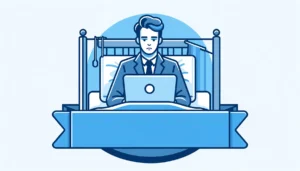Mental health awareness training in the digital age
- 5 Min Read
Mental health and wellbeing can cost organisations dearly. It is therefore vital for businesses to ensure their workforce has the appropriate training and support to not only deal with mental struggles, but also recognise them in their peers
- Author: Sarah Haselwood
- Date published: Sep 22, 2022
- Categories

Mental health issues cost the UK economy over £117 billion a year, the equivalent to approximately 5% of GDP. And while we know organisations must support mental health, managers and employees often are not equipped to notice or manage specific cases, and well-being programmes may be introduced too late.
All employers must be more able to recognise and support mental health in the workplace all year round, and if done correctly, training is the prerequisite for healthy usage of digital health & wellbeing programmes and tools.
What is mental health?
Mental health relates to our psychological, emotional, and social well-being; it affects how we act, think, feel, manage stress, and interact with others. It can be influenced by life experiences and biological factors and can change over time.
Mental health issues can occur at any point in someone’s life, and considering we spend over a third of our lives at work, mental health issues are likely to appear regularly in the workplace.
Yet, how many employees understand the basics of mental wellbeing and know how to support themselves and others? In reality, how much is going unnoticed?
Mercer’s new mental health awareness training for all takes awareness to a new level. Achievable in the digital age, it seeks to proactively align knowledge and solutions to infiltrate an organisation’s people and culture.
The changing state of support
There are various forms of support for mental health, and early intervention is essential, yet traditionally, workplace initiatives have been offered only once a problem occurs.
Wolfgang Seidl, a partner at Mercer believes we need to tackle the issue early.
“Psychological safety is an issue businesses need to be cognizant of year-round,” he says. “If you do not offer the opportunity for people to contribute to discussions and be inclusive, they will unlikely feel like they are in a psychologically safe environment, and therefore they will not be happy and less productive.”
The environment is more challenging due to the rise in remote working and the adoption of more permanent hybrid working models. This makes it much more difficult for managers and colleagues to spot the early signs of people suffering.
“Mental health has risen to the top of the agenda, and the type of training delivery has changed because of the pandemic,” says Seidl. “The working from home revolution means we have to be much more aware of people’s attention spans and what is possible online.”
Importance of workplace mental health awareness training
Mental health and wellbeing can cost organisations in terms of decreased productivity, increased absence and individuals who are not working to their full potential. Deloitte reports that annually the cost of workplace mental health is £1,684 per employee, and investment in mental health offers, on average, a return of £5 for every pound spent.
Therefore, if individuals are equipped with the skills to notice issues in themselves and others and know how to obtain essential support, mental ill-health can be identified early, and support can be put in place or existing support can be accessed more confidently.
Training must be action orientated, not just a deluge of facts and figures. Training needs to be interactive, practical, and inclusive for maximum impact.
Mercer’s four-part mental health awareness training
Mercer collaborated with Make a Difference and identified mental health training should be accessible to all employees, focusing on areas that matter and add value.
“It’s irrelevant to name the regions of the brain and that much detail about neuroscience,” says Seidl, emphasising topics must be relevant to those digesting the information. “Mercer’s training is appropriate for all people, regardless of gender, age, and ethnicity, or if they are blue or white collar, and we have deliberately designed it like that.”
Mercer’s philosophy is mental health awareness is for all and less is more. Their training is short and snappy and contains four modules, each lasting ten minutes.
Seidl adds that there is no complicated psychological jargon, only engaging “dramatised learning content”. He adds ‘We worked with actors so you can see their facial expressions etc., there are celebrity interviews and expert comments from me only where necessary,” he says.
The four modules are resilience, empathy, self-care and engagement. Most of the modules recognise individuals are not always born with the skills needed to support both their own and their peers’ mental health.
In reference to the empathy module, Seidl notes it is a skill which can be learned. “Research shows that those with high levels of empathy benefit less from training than those with low levels because they have more to catch up on,” he says.
“The module shows how we can learn to take another person’s perspective, without trying to walk in their shoes, which is not possible, and there are simple visual exercises to help with that.”
Meanwhile, the engagement module also has a ripple effect across the culture of the organisation in terms of raising awareness of the issue across the business. “We need to reach out to other people and create some sort of grassroots movement of looking out for each other and having a workplace culture characterised by psychological safety, empathy and inclusion,” says Seidl.
The way Mercer’s training is structured, and Seidl himself, suggests mental health awareness in the workplace will not work with a quick one-off training session for some employees.
Instead, it should be all-inclusive and form part of the core of doing business. He concludes that such awareness “has to permeate the whole culture of the organisation.”
To find out more on how Mercer can help your HR function, register for this latest event here.









